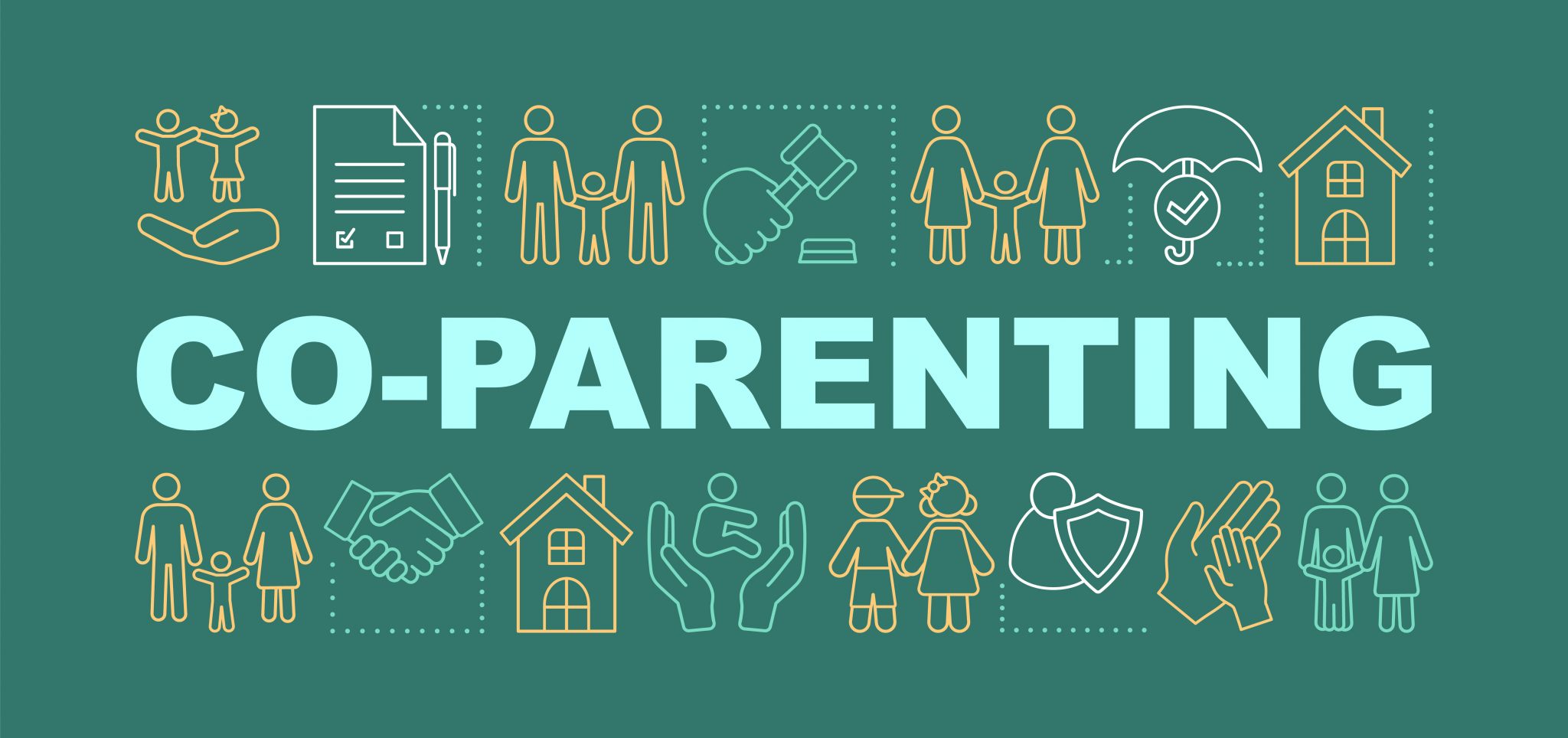Co-parenting following a divorce or separation can be extremely challenging, especially if the parents have different priorities, schedules, and parenting styles. However, having a well-structured and flexible co-parenting plan can make the process smoother and help ensure the best outcomes for the children involved.
What is on this page
Understanding the Needs of Each Parent
The first step in developing a co-parenting plan is to understand the needs and priorities of each parent. The first step includes identifying individual schedules, responsibilities, and parenting styles.
Encouraging open communication between the parents is critical in this process, as it allows them to discuss their concerns and find common ground.
Open communication also helps to promote a healthy and respectful co-parenting relationship, which is essential for the well-being of the children involved. It is important to remember that the co-parenting plan is not about winning or losing but finding a solution that works for everyone.
Finding common ground and making compromises is critical in developing a co-parenting plan that works for both parents. This may involve changing individual schedules or responsibilities, but the ultimate goal should always be the well-being of the children.

Developing the Co-Parenting Plan
Defining roles and responsibilities for each parent
Defining the roles and responsibilities of each parent is a crucial aspect of developing a successful co-parenting plan. It helps establish clear expectations and boundaries for each parent and ensures that everyone involved knows their responsibilities. When defining the roles and responsibilities, it is important to consider each parent’s individual strengths and weaknesses, as well as their schedules and responsibilities outside of parenting. This can help to ensure that the co-parenting plan is well-balanced and promotes a healthy and respectful co-parenting relationship. It is also essential to be flexible and open to making changes to the plan as needed, especially as the children grow and their needs change. Regularly reviewing and updating the plan can help to make sure the plan continues to meet the needs of everyone involved.
Establishing a schedule for parenting time and decision-making
Establishing a schedule for parenting time and decision-making is crucial to co-parenting. Having a clear and consistent schedule helps to reduce confusion and promote stability for the children. When developing the schedule, it is essential to consider each parent’s individual needs and schedules, as well as the children’s schedules and activities. It is also vital to ensure that the schedule is flexible and can be adapted as needed to accommodate changes in circumstances, such as work or school commitments.
In decision-making, it is important to establish clear guidelines for who is responsible for making decisions about the children’s care and well-being. This can include decisions about education, healthcare, and other vital aspects of their lives. When making decisions, it is essential to prioritize the children’s best interests and to engage in open and respectful communication with each other. When disagreements arise, seeking additional support, such as mediation or counselling, may be necessary to help resolve any conflicts and ensure that the co-parenting plan remains adequate.
Addressing potential conflicts and setting guidelines for resolving them
Addressing potential conflicts and setting guidelines for resolving them is an essential aspect of co-parenting. Conflicts are bound to arise, but it is vital to have a plan to address them constructively and respectfully. This can include clear communication guidelines, such as avoiding negative or hostile language, and a commitment to finding mutually acceptable solutions. It may be helpful to have a designated third party that remains neutral, such as a mediator or counsellor, to help facilitate communication and resolve any disputes that may arise.
In addition to addressing conflicts, it is crucial to have a plan to address any changes in circumstances, such as changes in work schedules or health issues. Addressing this can help to ensure that the co-parenting plan remains effective and meets the needs of everyone involved. When conflicts arise, or changes occur, it is essential to prioritize the children’s best interests and maintain open and respectful communication with each other. With a clear plan in place, parents can work together to promote a healthy and successful co-parenting relationship for the benefit of the children.
Regularly reviewing and updating the plan
Regularly reviewing and updating the plan is important to maintaining a successful co-parenting relationship. Life circumstances can change, and it is essential to be open to making changes to the plan as needed. This can include changes in work schedules, children’s needs or activities, or other changes that may impact the co-parenting relationship. Regularly reviewing and updating the plan helps to ensure that it continues to meet the needs of everyone involved and promotes a healthy and successful co-parenting relationship.
When reviewing and updating the plan, it is imperative to involve both parents and prioritize the children’s best interests. Engaging in open and respectful communication, considering each parent’s individual needs and schedules, and being flexible and adaptable to changes are all critical components of a successful co-parenting plan. By regularly reviewing and updating the plan, parents can work together to promote the children’s stability, consistency, and well-being.
Involving the Children
Involving the children in the co-parenting process is also essential, as it can help ensure that their needs and best interests are considered. Open communication with the children can also help promote a healthy and respectful co-parenting relationship.

Including the children in decision-making processes where appropriate is another way to involve them in co-parenting. For example, asking the children for their input on the parenting schedule can help to ensure that the schedule meets their needs and provides them with stability and consistency.
Ensuring that the co-parenting plan takes the children’s needs and best interests into account is critical. This may involve making necessary compromises and changes to the plan, but the ultimate goal should always be to provide the children with a stable and supportive environment.
Implementing the Plan
Once the co-parenting plan has been developed, the next step is implementing it. Establishing clear expectations and boundaries is critical in this process, as it helps ensure everyone involved working towards the same goals. Encouraging consistency and stability in the children’s lives are also important, as it helps reduce stress and anxiety and promotes a positive co-parenting relationship.
Being flexible and open to change is also important when implementing the co-parenting plan. Life circumstances can change, and it is essential to be open to making changes to the plan as needed. Regularly reviewing and updating the plan can help to ensure that the plan continues to meet the needs of everyone involved.
Developing a Co-parenting Plan and Therapy
Co-parenting and Family Therapy
In conclusion, developing a co-parenting plan that works for everyone is critical to co-parenting after a divorce or separation. Understanding the needs and priorities of each parent, developing a comprehensive plan, involving the children, and being flexible and open to change are all key components of a successful co-parenting plan.
A well-structured and flexible co-parenting plan can help to promote a healthy and respectful co-parenting relationship, ensure the well-being of the children, and provide stability and consistency in their lives. If you are facing challenges with co-parenting, it is important to seek additional resources and support to help ensure the best outcomes for everyone involved.

